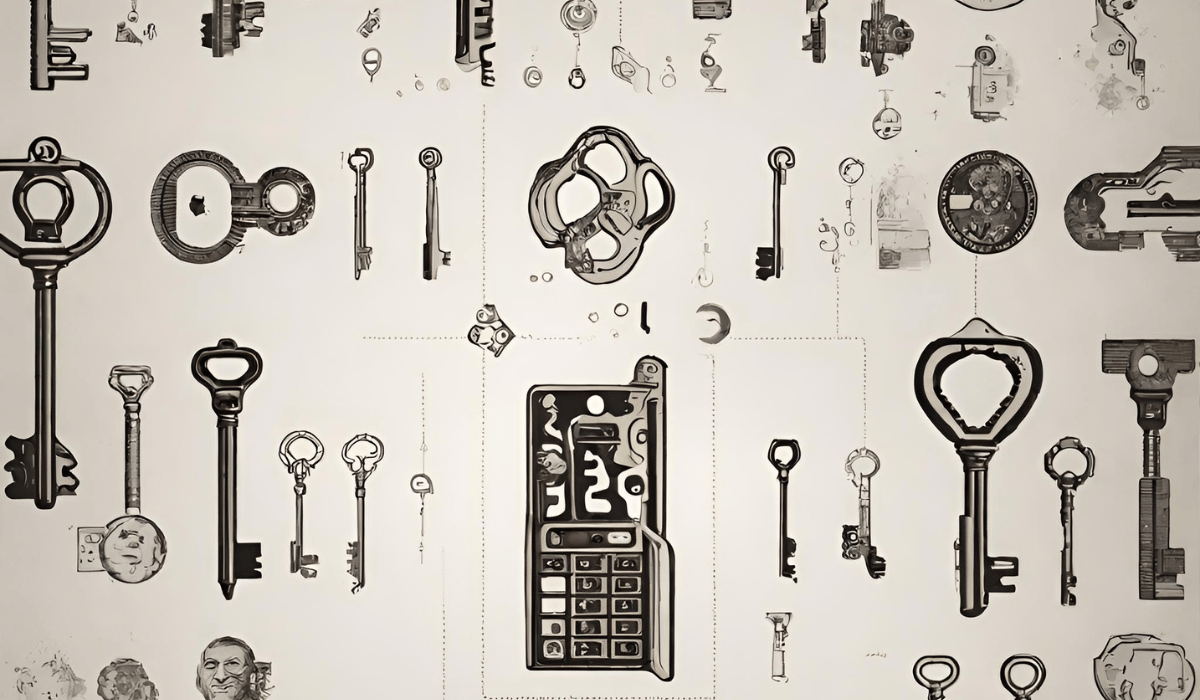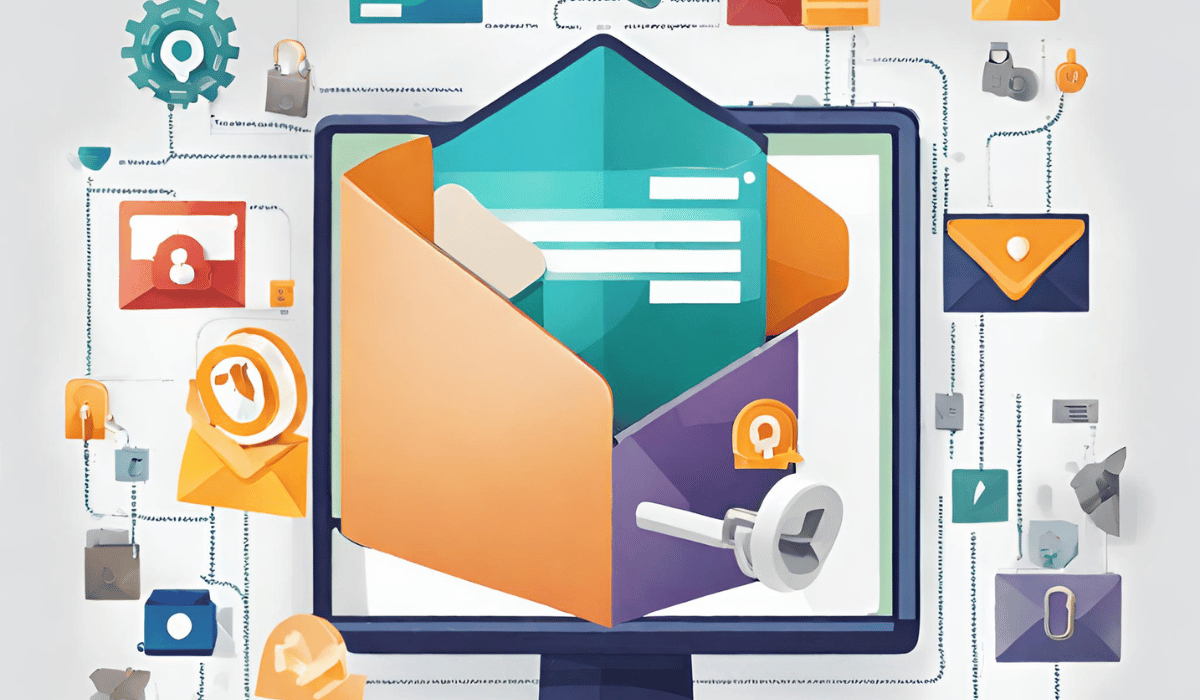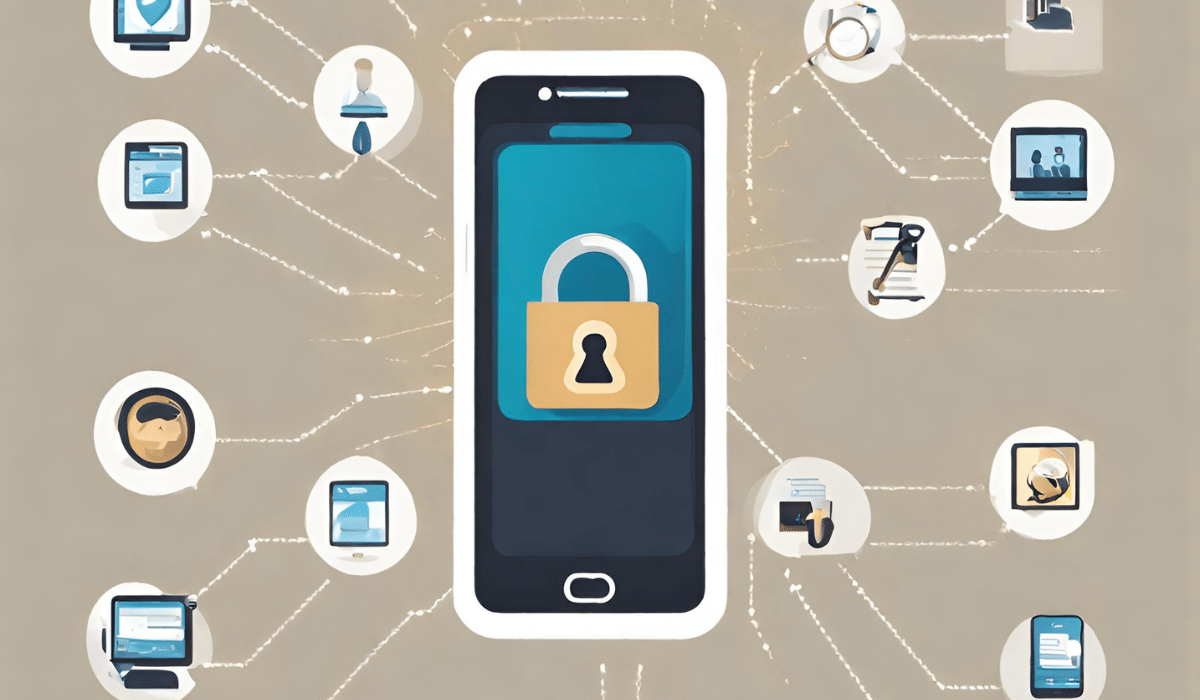Importance of Data Security
Data security is important for various reasons, including:
1. Protecting sensitive information: Data security ensures that sensitive information, such as personal and financial data, is protected from unauthorized access, theft, or misuse.
2. Maintaining trust: Businesses and organizations that handle sensitive data must maintain the trust of their customers and clients. Data breaches can lead to a loss of trust, which can be difficult to regain.
3. Compliance with regulations: Many industries have regulations that require businesses to protect sensitive data.
Choosing an Encryption Method
When choosing an encryption method, it’s important to consider the level of security needed for the data to be protected. Some encryption methods may be more suitable for certain types of data or industries. Additionally, the ease of implementation and maintenance of the encryption method should also be taken into account. It’s also important to ensure that the encryption method is compatible with the systems and software being used to store and transmit the data. Consulting with a cybersecurity expert can help in selecting the best encryption method for your specific needs.
Generating Strong Encryption Keys

Generating strong encryption keys is essential for ensuring the security of your data. A key is a piece of information used to encrypt and decrypt data. The strength of the encryption key is determined by its length and complexity. A longer and more complex key is more secure than a shorter and simpler one. To generate a strong encryption key, you can use a random number generator or a key generator tool.
Importance of Strong Encryption Keys
Strong encryption keys are crucial for protecting sensitive information from unauthorized access. They are used to secure data in transit, such as when sending an email or making an online purchase, as well as data at rest, such as stored files on a computer or server. Without strong encryption keys, sensitive information can be easily intercepted and read by hackers or other malicious actors. Additionally, many regulatory frameworks and industry standards require the use of strong encryption keys to protect sensitive data.
Secure Storage Solutions
Secure storage solutions are essential for protecting sensitive data from unauthorized access, theft, or loss. These solutions can include physical security measures such as locked cabinets, secure rooms, and biometric access controls, as well as digital security measures such as firewalls, intrusion detection systems, and data encryption. Cloud storage solutions are becoming increasingly popular for their convenience and scalability, but they also require careful consideration of security measures to ensure the protection of sensitive data.
Encryption at Rest
Encryption at rest is a security measure that involves encrypting data when it is stored on a device or server. This ensures that even if an unauthorized person gains access to the storage device, they will not be able to read the data without the encryption key. Encryption at rest can be implemented using various techniques such as full disk encryption, file-level encryption, or database encryption. It is an essential security measure to protect sensitive data from theft or unauthorized access.
Encryption in Transit
Encryption in transit is a security measure that involves encrypting data when it is being transmitted between devices or over a network. This ensures that even if an unauthorized person intercepts the data, they will not be able to read it without the encryption key. Encryption in transit can be implemented using various techniques such as SSL/TLS protocols, VPNs, or secure file transfer protocols. It is an essential security measure to protect sensitive data from interception or eavesdropping during transmission.
Secure File and Folder Encryption
Secure file and folder encryption is a technique used to protect data at rest, which means data that is stored on a device or server. Encryption ensures that even if an unauthorized person gains access to the data, they will not be able to read it without the encryption key. There are various encryption software available that can be used to encrypt files and folders on a device or server. Some of the popular encryption software include VeraCrypt, BitLocker, and AxCrypt.
Database Encryption
Database encryption is a technique to protect sensitive data stored in a database. Encryption ensures that even if an unauthorized person gains access to the database, they will not be able to read the sensitive data without the encryption key. There are various encryption techniques used for database encryption, such as column-level encryption, table-level encryption, and full database encryption. Some popular database encryption software includes Microsoft SQL Server Always Encrypted, Oracle Transparent Data Encryption, and MySQL Enterprise Encryption.
Encrypting Emails and Messaging

Encrypting emails and messaging is an important step in ensuring the privacy and security of sensitive information. Encryption works by scrambling the content of the message in a way that can only be deciphered by the intended recipient. This prevents unauthorized access to the message by hackers or other third parties. There are various encryption techniques used for email and messaging encryption, such as symmetric key encryption, public key encryption, and hybrid encryption.
Mobile Device Encryption

Mobile device encryption is another important aspect of data security. Encryption can be applied to the data stored on a mobile device, such as contacts, messages, and files, to prevent unauthorized access in case the device is lost or stolen. This is especially important for business users who may have sensitive information stored on their devices. Mobile device encryption can be done using various techniques, such as full-disk encryption, file-based encryption, and hardware-based encryption.
Backup and Recovery of Encrypted Data
It is crucial to have a backup and recovery plan in place for encrypted data on mobile devices. This will ensure that even if the device is lost or damaged, the data can still be recovered. It is recommended to regularly back up the encrypted data to a secure cloud storage service or an external hard drive. It is also important to test the recovery process regularly to ensure that the data can be restored successfully. In addition, users should keep the encryption key or password in a safe location, separate from the
Securing Encrypted Data in the Long Term
Encrypting data on mobile devices is a crucial step in ensuring the security of sensitive information. However, it is equally important to secure encrypted data in the long term to prevent any potential loss or damage. One way to do this is by regularly backing up the encrypted data to a secure cloud storage service or an external hard drive. This will ensure that even if the device is lost or damaged, the data can still be recovered.
Technology Advancements And Potential Vulnerabilities
As technology continues to advance, it is important to stay vigilant against potential vulnerabilities that may arise. One way to do this is by regularly updating software and firmware on devices to ensure that any known vulnerabilities are patched. Additionally, it is important to stay informed about new threats and security risks and to take appropriate measures to mitigate them. This may include using strong passwords, enabling two-factor authentication, and limiting access to sensitive data only to those who need it.
Strategies For Maintaining Data Security Over Time
Maintaining data security over time requires a combination of proactive measures and ongoing monitoring. Here are some strategies to consider:
1. Conduct regular security audits: Regular security audits can help identify vulnerabilities and risks before they can be exploited.
2. Implement access controls: Limit access to sensitive data only to those who need it, and ensure that appropriate access controls are in place.
3. Use strong passwords: Strong passwords can help prevent unauthorized access to systems and data.
4. Enable two-factor authentication.
FAQs
How Does Encryption Protect Data?
Encryption is a process of converting plain text or data into a coded language that only authorized parties can read. This is done by using an encryption algorithm and a key. When data is encrypted, it becomes unreadable to anyone who does not have the key to decrypt it. This protects the data from unauthorized access and ensures that only those who have the key can access and read the data.
What Are The Best Encryption Algorithms?
There is no one “best” encryption algorithm, as different algorithms may be better suited for different types of data and security needs. However, some commonly used encryption algorithms include AES, RSA, and Blowfish. It’s important to use encryption algorithms that are widely recognized and have been thoroughly tested for security vulnerabilities.
What Are Some Secure Storage Options For Encrypted Data?
There are several secure storage options for encrypted data, including:
1. Encrypted USB drives: These are portable storage devices that come with built-in encryption software to protect data.
2. Cloud storage with encryption: Cloud storage providers like Google Drive, Dropbox, and OneDrive offer encryption options for data stored on their servers.
3. Encrypted hard drives: These are physical hard drives that come with built-in encryption software to protect data.
How Do I Encrypt Files And Folders?
To encrypt files and folders, you can use software like VeraCrypt or BitLocker (for Windows) or FileVault (for Mac). These programs allow you to create encrypted volumes or containers where you can store your sensitive files and folders. You can also set up a password or passphrase to access the encrypted data. Once the data is encrypted, it can only be accessed with the correct password or passphrase.
Should I Encrypt Data on My Mobile Device?
Yes, it is highly recommended to encrypt data on your mobile device as it can help protect your personal information and sensitive data from unauthorized access in case your device is lost or stolen. Most mobile devices have built-in encryption features that you can enable in the settings. You can also use third-party apps like Signal or WhatsApp that offer end-to-end encryption for messaging and calls.
How Do I Ensure Compliance When Storing Encrypted Data?
To ensure compliance when storing encrypted data, you should follow these best practices:
1. Use strong encryption algorithms: Use encryption algorithms that are approved by industry standards and government regulations.
2. Protect encryption keys: Encryption keys should be stored securely and only accessible to authorized personnel.
3. Implement access controls: Limit access to encrypted data to only authorized personnel and ensure that they have appropriate permissions.
4. Monitor access and usage: Keep track of who is accessing encrypted data and how it is being used.
Conclusion
In conclusion, protecting data through encryption is crucial for ensuring its confidentiality, integrity, and availability. By following best practices such as using strong encryption algorithms, protecting encryption keys, implementing access controls, and monitoring access and usage, organizations can mitigate the risks of data breaches and unauthorized access. As a writing assistant, I recommend that organizations prioritize data protection through encryption to safeguard their sensitive information.
